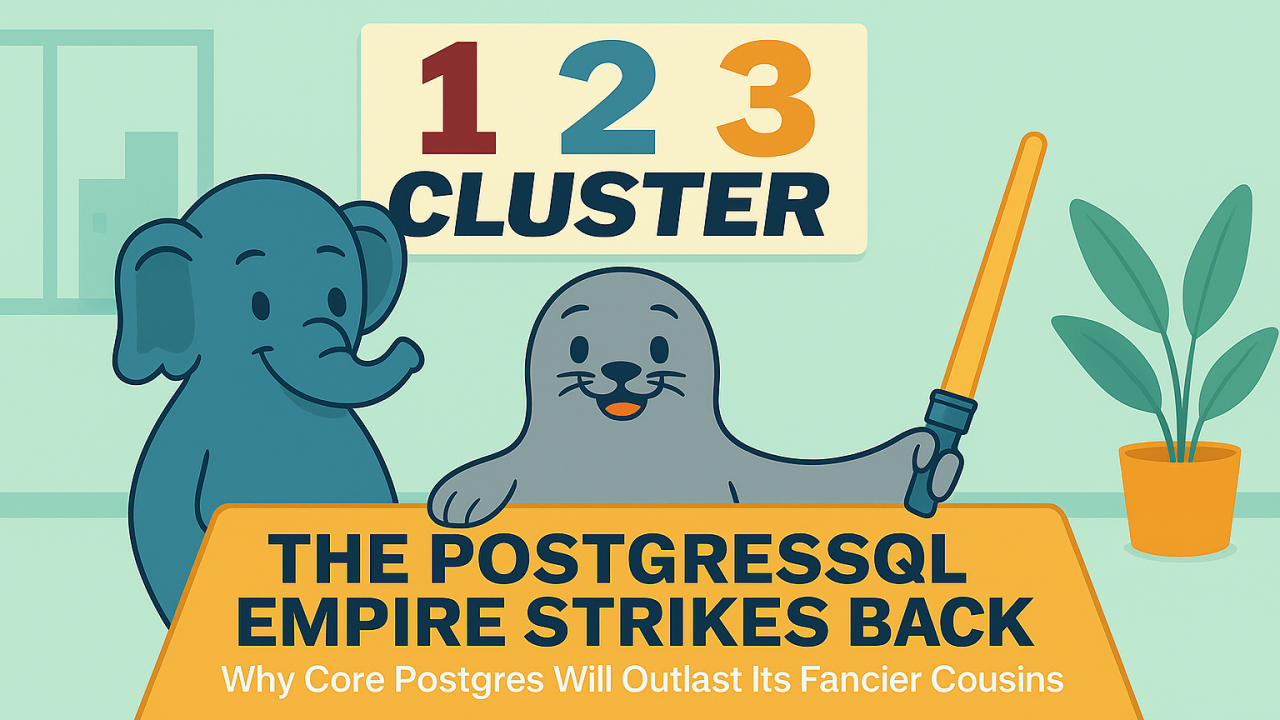
Virtually every "new" database company is building on PostgreSQL. This deep dive explores what that means for your tech stack, why it matters and why the original may still be your best choice.
PostgreSQL Is Quietly Winning
Recent acquisition headlines make it clear:
These moves signal PostgreSQL's growing dominance in the database landscape.
From cloud providers to startups, PostgreSQL is everywhere.
The pattern is consistent: take PostgreSQL, add a niche feature and build a business on top of it.
PostgreSQL solves a broad set of real-world problems, often without the need for a specialized database.
Despite PostgreSQL’s ubiquity, hiring practices often miss the mark.
The core database skills: query writing, schema design, performance tuning are the same because it’s all PostgreSQL.
Companies like Databricks and Snowflake didn’t just buy features, they bought PostgreSQL expertise. Rather than build deep PostgreSQL competency from scratch, they chose to acquire it. This underscores how mature and valuable the PostgreSQL talent pool has become.
The market recognizes that PostgreSQL is more than a tool; it's the foundation of modern data infrastructure.
PostgreSQL skills are broadly applicable and enduring. Learning PostgreSQL is learning the backbone of modern data systems.
Be cautious about vendor-specific PostgreSQL variants.
Sticking with standard PostgreSQL ensures portability and long-term flexibility.
PostgreSQL represents a stable, foundational asset in enterprise software. Its growing ecosystem continues to command strong valuations.
"There are no copies without PostgreSQL, but there is PostgreSQL without the copies."
Every company building on PostgreSQL depends on it, but PostgreSQL remains independent of any one vendor.
Tooling, deployment strategies and integrations: not the core engine.
Optimizations from proprietary variants often feed back into the open-source core, strengthening the ecosystem for all.
The industry has chosen its foundation. PostgreSQL has transcended being just a database; it is now core infrastructure, as fundamental as Linux.
While many of its commercial variants will pivot, merge, or fade away core Postgres will remain: reliable, extensible, and free. Your skills in it will never become obsolete and your choice to build on it will grant you the ultimate strategic advantage: freedom.

Automate deployment, scaling, and maintenance of your database clusters to ensure peak performance and reliability.